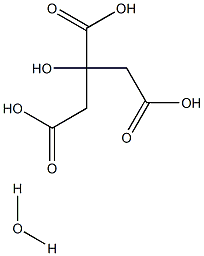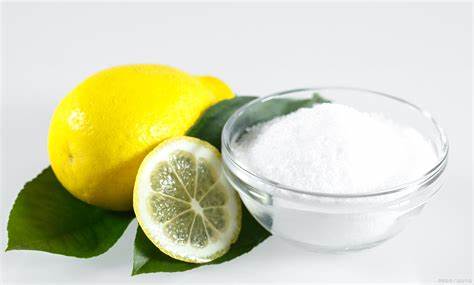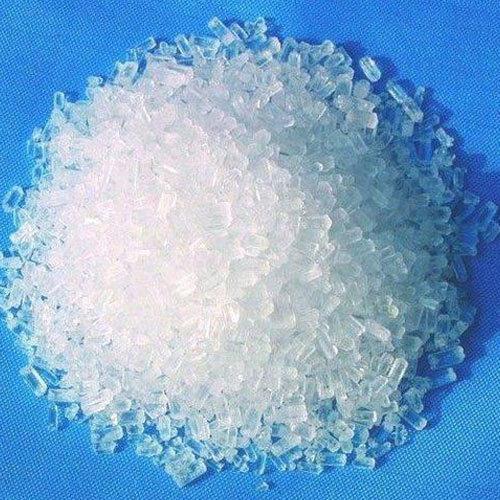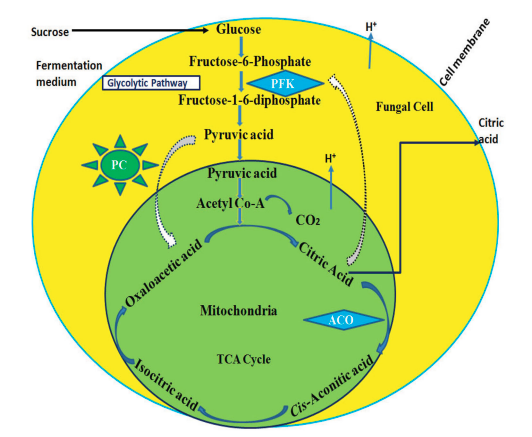Applications of Citric acid monohydrate
Citric acid monohydrate is a weak organic acid commonly used in the food, cosmetic and pharmaceutical industry. The parent base of Citric acid monohydrate, citrate, is a component of the Krebs cycle, and occurs naturally during metabolism in all living organisms. Citric acid monohydrate is found naturally in citrus fruit such as lemons and limes and is used as a natural preservative. Monohydrate citric acid has one water molecule as part of it's chemical formula, and exists as a white powder[1]. Citric Acid Monohydrate is a tricarboxylic acid found in citrus fruits. Citric acid monohydrate is used as an excipient in pharmaceutical preparations due to its antioxidant properties. Citric Acid Monohydrate maintains stability of active ingredients and is used as a preservative. Citric Acid Monohydrate is also used as an acidulant to control pH and acts as an anticoagulant by chelating calcium in blood. Citric acid monohydrate is an organic molecular entity. A key intermediate in metabolism. Citric Acid Monohydrate is an acid compound found in citrus fruits. The salts of Citric acid monohydrate can be used as anticoagulants due to their calcium chelating ability.Citric Acid Monohydrate is a tricarboxylic acid found in citrus fruits. Citric Acid Monohydrate is also used as an acidulant to control pH and acts as an anticoagulant by chelating calcium in blood.
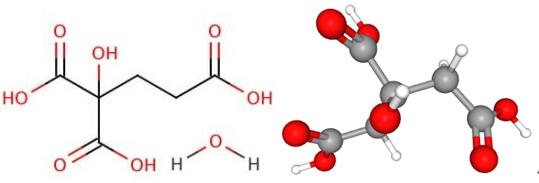
Fig 1. Chemical structure formula and three-dimensional structure of Citric acid monohydrate
Citric Acid Monohydrate is an acidic compound from citrus fruits; as a starting point in the Krebs cycle, citrate is a key intermediate in metabolism. Citric Acid Monohydrate is one of a series of compounds responsible for the physiological oxidation of fats, carbohydrates, and proteins to carbon dioxide and water. Citric Acid Monohydrate has been used to prepare citrate buffer for antigen retrieval of tissue samples. The citrate solution is designed to break protein cross-links, thus unmasking antigens and epitopes in formalin-fixed and paraffin embedded tissue sections, and resulting in enhanced staining intensity of antibodies. Citrate has anticoagulant activity; as a calcium chelator, Citric Acid Monohydrate forms complexes that disrupt the tendency of blood to clot.Citric Acid Monohydrate may be used to adjust pH and as a sequestering agent for the removal of trace metals[2,3].
Citric acid monohydrate is often used to adjust pH, to add sour flavor to foods and beverages, and to form the salt derivative of minerals and metals for pharmaceuticals, as in the case of potassium citrate, a dietary supplement. According to the FDA Select Committee on Generally Recognized as Safe (GRAS) food substances, citrate salts, including Citric acid monohydrate, are generally regarded as safe when used in normal quantities[4].
Citric acid monohydrate is non-toxic and has a low reactivity. Citric acid monohydrate is chemically stable if stored at ambient temperatures. Citric acid monohydrate is fully biodegradable and can be disposed of with regular waste or sewage.
References
[1] Anastassiadis S, Morgunov IG, Kamzolova SV, et al. Citric acid production patent review. Recent Patent Biotechnol. 2008;2:107-23.
[2] Vandemark, P.J. and Smith, P.F. 1964. J. Bacteriol. 88: 1602-1607.
[3] Shi, S.R., et al. 1993. J. Histochem. Cytochem. 41: 1599-1604.
[4] FDA’s SCOGS database; triethyl citrate; SCOGS-Report Number: 84.
Related articles And Qustion
See also
Lastest Price from Citric acid monohydrate manufacturers

US $0.00-0.00/KG2025-09-29
- CAS:
- 5949-29-1
- Min. Order:
- 1KG
- Purity:
- 98%min
- Supply Ability:
- 30tons/month

US $1200.00-1100.00/ton2025-08-08
- CAS:
- 5949-29-1
- Min. Order:
- 1ton
- Purity:
- 99%
- Supply Ability:
- 1000T/M
